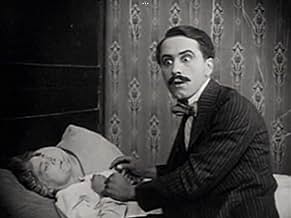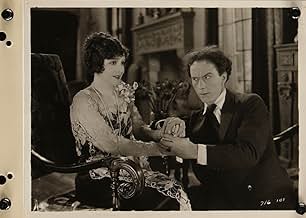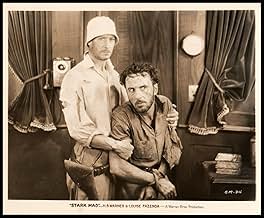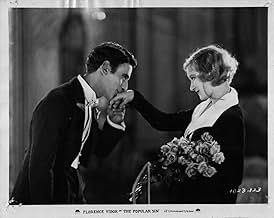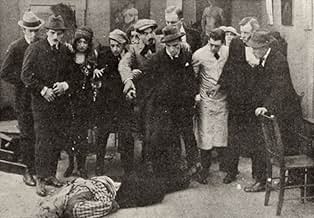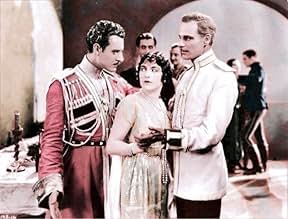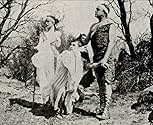George Beranger(1893-1973)
- Actor
- Director
- Writer
George Augustus Beringer was born in Enmore, New South Wales, Australia, the youngest of five sons born to Caroline Mondientz Beringer and Adam Beringer, a German engine fitter. His mother committed suicide when he was three years old, and his father's new wife turned the boys out of the house when they reached the age of fourteen.
In Sydney, he attended the College of Elocution and Dramatic Art run by Walter Bentley. At the age of sixteen, Beranger began playing Shakespearean roles with the Walter Bentley Players. In July 1912, Beranger entered Vancouver illegally on a steamship. Several months later, Beranger was photographed with stage and screen actor Donald Crisp in Union Square, New York, then the city's theater district and close to D.W. Griffith Biograph studios.
Taking the pseudonym George Andre de Beranger and sometimes being billed as variations of the same, he began acting in silent films in which Griffith had a role. In 1913, he acted in five Biograph films, and by 1914, Beranger was playing the part of young southerner Duke Cameron in Griffith's Civil War blockbuster The Birth of a Nation (1915), as well as taking the role of Griffith's assistant director, among numerous other roles.
In 1917, the press announced that Beranger was going to enlist in the Australian army, but by July 1918, Paramount's press department was informing the public that he had been discharged from the Canadian Royal Flying Corps. due to severe illness, but that he intended returning to service after recuperating, but the war ended before he did so.
At the time, it was considered part of the role of a performer as a storyteller to fabricate a fake backstory. The media, fan letters, and press books were consistently filled with stories about his French parentage, that his birth took place on a French ocean liner off the coast of Australia, and that he had received his education in Paris. However, such misinformation benefited his career, which saw him later perfect the foppish or effete Frenchman role most notably displayed with his role in So This Is Paris (1926), Ernst Lubitsch satirical take on Rudolph Valentino, and the ''sheikh fever'' of the time.
By the 1920s, Beranger had become a star, acting in and directing dozens of movies in the US, Britain, and Holland, and he won a Variety Award (a forerunner of the Academy Award). His movies eventually covered adventure, historical romance, mystery, and comedy. He played pirates, soldiers, crooks, dandies, sophisticates, and European noblemen, but comedy was his forte, particularly the role of the ardent but unlucky lover.
Beranger owned a large Spanish-style home in Laguna Beach, rented a room at the Hollywood Athletic Club, owned an apartment in Paris, France, and drove a Kissel Roadster. Ocean cruising was a popular pastime, and he made several trips to Britain and France, and later, in 1928, he returned to Sydney to visit his family.
Beranger's finances and career were affected by the Great Depression and a contract dispute with Equity. Despite taking more frequent small, uncredited roles, he was eventually forced to sell his home and most of his land and move into a small cottage, located on the same block, of what remained of his land. He also entered into a marriage with a neighboring widow, but the couple did not share a house.
He continued acting in films through the 1930s and until 1950. He played supporting roles and featured bit parts with lines and always opposite the lead actor. He also took work as an architectural draftsman for the Los Angeles city council, and he continued to stay at the Hollywood Athletic Club during the week. Later career highlights included; film noirs: The Spider (1945) (a B noir in which he has several lines as a nosy apartment manager), Nightmare Alley (1947) (an all-time classic noir, playing the geek in the first act and singing the Irish drinking song "The Boston Burglar") and Road House (1948) (in which he played Richard Widmark bespectacled fishing buddy, "Lefty").
Beranger retired completely from all work in 1952, and he lived his later years in seclusion. He had built an impressive collection of silent films during his years in the industry, and he enjoyed screening them. His other hobbies included traveling, driving, visiting the beach, and reading. He had also amassed a large collection of press cuttings, photographs, and costumes representing a successful career of which he was immensely proud.
Beranger was found dead by natural causes in his home, behind locked gates and high walls. He had been dead for several days before a postman noticed mail spilling from the letterbox and called the police. Most of his belongings were packed into trunks and sent to his family in Australia.
Five of Beranger's movie's have since been selected for preservation by the National Film Registry.
In Sydney, he attended the College of Elocution and Dramatic Art run by Walter Bentley. At the age of sixteen, Beranger began playing Shakespearean roles with the Walter Bentley Players. In July 1912, Beranger entered Vancouver illegally on a steamship. Several months later, Beranger was photographed with stage and screen actor Donald Crisp in Union Square, New York, then the city's theater district and close to D.W. Griffith Biograph studios.
Taking the pseudonym George Andre de Beranger and sometimes being billed as variations of the same, he began acting in silent films in which Griffith had a role. In 1913, he acted in five Biograph films, and by 1914, Beranger was playing the part of young southerner Duke Cameron in Griffith's Civil War blockbuster The Birth of a Nation (1915), as well as taking the role of Griffith's assistant director, among numerous other roles.
In 1917, the press announced that Beranger was going to enlist in the Australian army, but by July 1918, Paramount's press department was informing the public that he had been discharged from the Canadian Royal Flying Corps. due to severe illness, but that he intended returning to service after recuperating, but the war ended before he did so.
At the time, it was considered part of the role of a performer as a storyteller to fabricate a fake backstory. The media, fan letters, and press books were consistently filled with stories about his French parentage, that his birth took place on a French ocean liner off the coast of Australia, and that he had received his education in Paris. However, such misinformation benefited his career, which saw him later perfect the foppish or effete Frenchman role most notably displayed with his role in So This Is Paris (1926), Ernst Lubitsch satirical take on Rudolph Valentino, and the ''sheikh fever'' of the time.
By the 1920s, Beranger had become a star, acting in and directing dozens of movies in the US, Britain, and Holland, and he won a Variety Award (a forerunner of the Academy Award). His movies eventually covered adventure, historical romance, mystery, and comedy. He played pirates, soldiers, crooks, dandies, sophisticates, and European noblemen, but comedy was his forte, particularly the role of the ardent but unlucky lover.
Beranger owned a large Spanish-style home in Laguna Beach, rented a room at the Hollywood Athletic Club, owned an apartment in Paris, France, and drove a Kissel Roadster. Ocean cruising was a popular pastime, and he made several trips to Britain and France, and later, in 1928, he returned to Sydney to visit his family.
Beranger's finances and career were affected by the Great Depression and a contract dispute with Equity. Despite taking more frequent small, uncredited roles, he was eventually forced to sell his home and most of his land and move into a small cottage, located on the same block, of what remained of his land. He also entered into a marriage with a neighboring widow, but the couple did not share a house.
He continued acting in films through the 1930s and until 1950. He played supporting roles and featured bit parts with lines and always opposite the lead actor. He also took work as an architectural draftsman for the Los Angeles city council, and he continued to stay at the Hollywood Athletic Club during the week. Later career highlights included; film noirs: The Spider (1945) (a B noir in which he has several lines as a nosy apartment manager), Nightmare Alley (1947) (an all-time classic noir, playing the geek in the first act and singing the Irish drinking song "The Boston Burglar") and Road House (1948) (in which he played Richard Widmark bespectacled fishing buddy, "Lefty").
Beranger retired completely from all work in 1952, and he lived his later years in seclusion. He had built an impressive collection of silent films during his years in the industry, and he enjoyed screening them. His other hobbies included traveling, driving, visiting the beach, and reading. He had also amassed a large collection of press cuttings, photographs, and costumes representing a successful career of which he was immensely proud.
Beranger was found dead by natural causes in his home, behind locked gates and high walls. He had been dead for several days before a postman noticed mail spilling from the letterbox and called the police. Most of his belongings were packed into trunks and sent to his family in Australia.
Five of Beranger's movie's have since been selected for preservation by the National Film Registry.

